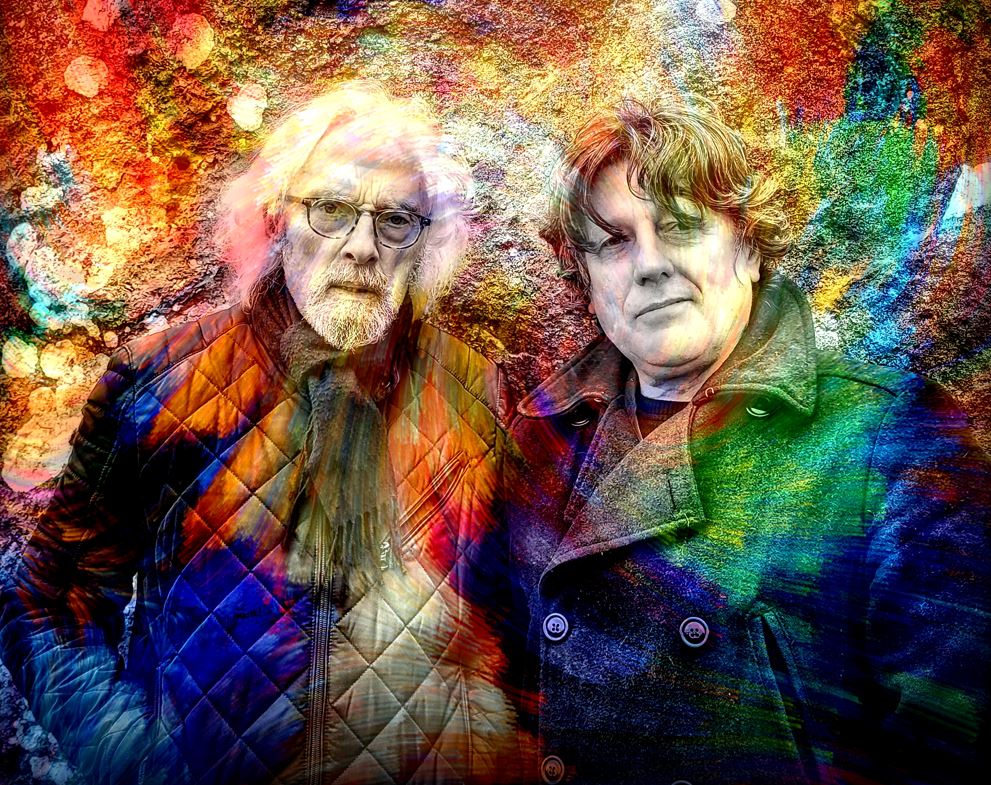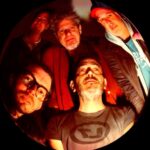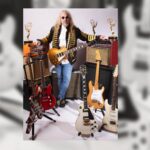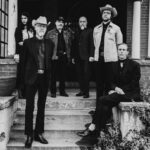
Peter Daltrey and Mark Mortimer
Peter Daltrey of Kaleidoscope/Fairfield Parlour speaks to Jason Barnard about his life in music, and new collaboration with Mark Mortimer (ex-DC Fontana) to produce some of the most adventurous and exciting music of his career. The following is an extract of a full interview that can be found on The Strange Brew.
Your new album Running Through Chelsea (credited to Peter Daltrey and The Know Escape), combines your usual high bar for lyrics, and Mark Mortimer’s fondness for the inventive 60s sound with a psychedelic feel. So it’s a really good fit. How did your collaboration start?
I’ve known Mark for a few years and he contacted me, wanting me to contribute just one line to a song he was working on, which I did. He came here and I did a vocal and off they went. And I didn’t hear from him for probably a couple of years. Probably 18 months ago, Mark contacted me, he sent me a track and said, “Do you fancy working on this? I need some lyrics.” His music is very inventive. The first one was ‘Time and Tide’. He and Michael Tyack, who he works with, had already done it. It was basically an instrumental and he said that he’d quite like me to find a space in it to contribute a couple of verses. It’s very tricky, because it’s a very liquid ephemeral sort of arrangement. It was difficult to find my way in. But eventually I wrote a couple of verses for that, recorded it here and sent them off to him. They were happy with that. And he said, let’s do another one. Because if a collaboration is going to work, that’s where it starts.
Was it always the case that you’d had a piece of music that was presented to you?
I always used to write the lyrics first. I was a 12 year old frustrated poet. I’ve got reams of that stuff upstairs. So that developed when I met Eddy Pumer. He asked me to join the band. We quickly realised we weren’t going to be able to exist on covers and we had to write our own. I don’t know why, it just naturally fell to me to write the lyrics. To spark Ed off, I used to write the lyrics and send them to him, and then he’d work out the melody. In the late 80s or 90s after White Faced Lady, the last album which eventually came out, there was a lot of talk in the band that we must get back in the studio. But very frustratingly for me, nobody did anything. When you’re a creative person, you can’t stop, it keeps bubbling up all the time, and you want to do stuff. And I’ve been frustrated for years not being able to do anything on my own. But when the band said, well, let’s get back in the studio, it didn’t work out. I thought, right, “Ok, I’ve got my own music”. It was at the time when you could start doing that on computers, there were digital workstations, you could work on keyboards, samples, everything like that. So incredibly, I found that with my very basic musical abilities, I don’t class myself, as a musician, that I can use a mini keyboard and pick out a bass line, strings and everything else as I do it one at a time. And then of course, I can write the lyrics and do the vocals over that. I did that for years. I’ve done 18 albums, some collaborations but quite a few solo albums. When I started collaborating with people, I always found it easier for me if they sent me the track first. And then I started writing the lyrics to it. That’s what I do now. I’ve worked with marvellous, incredible musicians and it’s very humbling to work with these people. It never ceases to amaze me how expert they are at the instruments they play. And that’s just the way it’s worked out, they send me the track and I work out the melody and the lyrics.
References to London, was that going back to the 60s?
Very much so but I don’t want to make an album that’s psychedelic. Fairfield Parlour wasn’t psychedelic. There was a little brief window of about 18 months in musical history. That was psychedelia, and we just happened to be recording in that window. So we got labelled forever as being psychedelic. But Ed and I never went into studios and said let’s be psychedelic, it didn’t work out like that. We were just fanatical songwriters. Dan and Steve were with us all the way. But when our writing changed, we realised fairly quickly that we had passed that stage and had to move on. That’s one of the reasons why we split from Fontana and moved to Vertigo, a progressive label. I don’t know how you specify From Home To Home, it’s a mixture of styles and it matured a lot from Tangerine Dream. If there’s one thing that I was proud of with writing with Eddy. It’s that over the years of our songwriting, we developed and matured. If you listen to White Faced Lady it bears very little resemblance to Tangerine Dream. But of course, we get labelled as psychedelic even now and that’s fine. I don’t mind. It’s nice to be remembered for something in particular. But I don’t want to make that album. I know Mark is very keen on the psychedelic side of it, but it doesn’t intrude on his music. There are elements in his music but it’s not overt. But the references to London in the 60s are just inevitable really. I was born and grew up in London; born and started my life in Bow then moved to Harrow. And then lived the whole of the 60s there. Ed and I worked right in the heart of London just behind Regent Street, Oxford Circus, from 1964 to 1969.
Further information
Running Through Chelsea by Peter Daltrey & The Know Escape is due to be released on 31 March 2023 on vinyl, CD and download.




